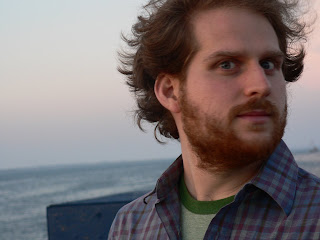My central enthusiasm of the last few weeks has been Neil Gaiman's exceedingly rich series of graphic novels collectively called "The Sandman." It is a gift of a narrative, variously textured, with stories of horror, magic, wonder and myth as well as more practical concerns: love, mourning, gender, politics, religion. I haven't read much Gaiman before - only the nifty horror tale "Coraline" - but what is so striking here is his serious humanism, a willingness to accept various characters in their inadequacy and difficulty and by returning to them over and over again over the course of many years of work on the project, find a openhearted forgiveness for each. It is not moralistic in opting out of unhappy endings, but it is a moral universe he creates, in which there is serious goodness.
One of my favorite parts of the work is a scenario in the third volume which the hero, a punkish brooder who is the embodiment of dreaming, has commissioned Shakespeare to write A Midsummer Night's Dream as a tribute to the actual King Auberon and Queen Titania of fairyland. The play is then presented to an audience of fairies (Puck, in particular, objects to his defanged portrayal as a benign joker), presented in a pastoral stage en plein airas if it were the original summer Shakespeare-in-the-park performance. This radical notion re-envisions this fanciful comedy as something closer to one of Shakespeare's history plays, with all the associated baggage of politics and the patron who must be minded--as in the way Macbeth, for instance, implicitly lionizes the new King James. A Midsummer Night's Dream already has a certain self-reflecting quality; Gaiman doubles down the mirrorings and discovers new wellsprings of poignancy, beauty and depth in the play. Making it new, making it fresh.
I kept having to remind myself as I read The Sandman that it was a 'guilty pleasure,' mainly because it is easy to read, riding on the greased slope of visual storytelling and cultural association. I met with the poet Marjorie Welish this week to discuss my poetry manuscript in progress (depending on when you ask me it is coalescing, near finished, long completed, and/or scarcely begun) and her advice to me, regarding my own poetic output, was that if something comes easily, you're not making it hard enough.
In a way, I think this is the central problem for comic book experiences like the one I had with the Sandman--it is profound, challenging emotionally, complex narratively--and yet it necessarily flies by as all comic books do. Even as it engaged the question of pastiche and the introduction of soap opera superhero narrative elements, the Sandman seemed to use such a light hand and such a free associative delicacy that it is hard to see these as inorganic or shallow. And yet I'm chastened by Joshua Clover's peremptory criticism of Gaiman on his blog for what he sees as shallow, mealy spiritual mumbo jumbo Joseph Campbell mythwork, all pseudointellectual hero king quests. And there is something to that, though the meandering, mosaic approach of comic book narrative does much to disguise it as something more substantive. Clover dismisses Gaiman essentially as Napoleon among the dwarves and, when my girlfriend asks me why I'm reading so many graphic novels lately, I can't help but feel the sting.
Still, if I compare it with the equally redoubtable Y the Last Man, a very clever saga by Lost writer Brian K. Vaughn imagining the realistic aftermath from a worldwide plague of male hominids, the superiority (the pygmy giant indeed) of Sandman is obvious. Where most popular fictions derive their pleasure from the modulated spinning of the wheels of plot, Gaiman's dream stories excite through their nesting, their meandering, in a word their form. Gaiman is delivering form over content, which, for a story about dream and the wispy fabric of our lives, is just about perfect.
Subscribe to:
Post Comments (Atom)

No comments:
Post a Comment